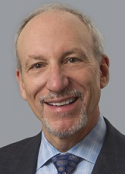An Inside Look: The Oncologist's Perspective On Biosimilars
A conversation with Lee S. Schwartzberg, M.D., executive director, West Cancer Center

Biosimilar Development regularly discusses educational strategies and biosimilar market access strategies implemented around the world. However, one perspective that deserves more attention (on this site and elsewhere) is that of oncologists. After all, these are the experts on the front lines, experiencing manufacturers’ education strategies and influencing biosimilar uptake. We reached out to Lee S. Schwartzberg, M.D., executive director of West Cancer Center and medical director and senior partner of West Clinic, to learn more about his experience thus far with biosimilars and his thoughts on the role biosimilars are currently playing in cancer care. In this Q&A, Dr. Schwartzberg discusses his own experience with biosimilars, some of the biggest stumbling blocks in the clinical setting for biosimilar integration, and the most overlooked stakeholders in biosimilar education strategies.
Are you involved in the procurement of medicines at the West Cancer Center, or do you work closely with the experts who are?
 We have a team including executives, pharmacists, and nurses who make decisions about which medications to stock and where to use them. All new medications are reviewed in our clinical practice/quality meeting and placed in appropriate care plans.
We have a team including executives, pharmacists, and nurses who make decisions about which medications to stock and where to use them. All new medications are reviewed in our clinical practice/quality meeting and placed in appropriate care plans.
What are the biggest questions being asked about integrating biosimilar medicines in the oncology space?
Procurement of medicines within the oncology space is acutely tied to patient outcomes, and doctors’ first concern is clinical efficacy. Cost is a secondary or tertiary consideration. Efficacy is often the first question regarding biosimilar medicines in oncology, even as a growing body of evidence suggests that the efficacy of biosimilar medicines matches that of reference biologics.
How were you introduced to biosimilar medicines, and what has your experience with them been thus far?
I have consulted on several biosimilar medicines during their development phase, and also participated in clinical trials. We adopted a G-CSF biosimilar after FDA approval and the release of the drug. We are very pleased with its performance to date. Having studied the biosimilar approval pathway carefully, I am confident that a biosimilar medicine will have similar clinical outcomes to the originator molecule.
Do you feel that many of your oncologist peers also have the same level of knowledge and experience with biosimilar medicines?
At the practitioner level, we are very close to the point that biosimilar medicines are universally well-known. There is still some uncertainty among a smaller number of physicians about the regulatory pathway for, or efficacy of, biosimilar medicines, meaning there’s still work to be done in the coming years on the education front.
What are the biggest stumbling blocks to understanding and using biosimilar medicines in cancer centers?
Biosimilar medicines are established among many physicians, but some uncertainty regarding the regulatory pathway and efficacy remains — not only for those in cancer centers, but for all healthcare facilities. In the supportive care space, use of biosimilar medicines is greater because of higher comfort with their use for these applications versus medical interventions, where the outcomes of cancer treatment are the tangible endpoint. The average practitioner isn't so largely concerned with the societal cost, but rather is focused on the individual’s cost of health.
Many argue that hospital physicians are comfortable with switching among different treatments and that the FDA’s interchangeability designation may not be necessary for a biosimilar to thrive in the hospital setting. Do you agree or disagree with these claims, and why?
The FDA definition of interchangeability has little real-world value in a hospital setting.
Regarding interchangeability, it is important to note: Biosimilar medicines are designed to match the reference product, so cost becomes the most important factor, but doctors often don’t raise cost concerns with patients.
At West Cancer Center, we use Zarxio, a filgrastim biosimilar. It is cost effective and works as effectively as the reference medicine. Studies have even demonstrated that, just like in the clinical trials, there are matching clinical profiles between the biosimilar filgrastim and the standard filgrastim when used for prophylaxis, or for any other likely cause.
What information will be the most important or valuable for those in cancer care facilities to learn about?
Education surrounding biosimilar medicines’ costs should be part of the overall conversation we are having about healthcare delivery and reducing the cost of care for patients within the health system. We could realize a significant cost reduction through a broader integration of biosimilar medicines into the system. The cost of drugs is fluid and is influenced by various facets of the free marketplace, and because biosimilar medicines are trying to come in at a lower average wholesale acquisition cost than the reference medicine, they have created a point of interest in the healthcare community.
Are there any stakeholders within the healthcare system (outside of doctors) that you feel are overlooked but could hold the key to greater biosimilar usage?
Doctors will look out for patient care first, before societal costs, but overall they are an educated audience on biosimilar medicines. The larger issue in this setting is those who are making business decisions for groups of physicians and who could be more strongly educated on the cost-benefit analysis and efficacy of biosimilar medicines.
Payers are most concerned with the overall cost burden. Many are embracing biosimilar medicines, but there is still a gap in public opinion/perception. The public, as a stakeholder, would benefit from a better understanding of the cost-value proposition of biosimilar medicines.
What can biosimilar manufacturers do to better engage and educate physicians in hospital settings (e.g., medical science liaison teams, publications, conferences, webinars, etc.)?
Biosimilar medicine manufacturers should focus on education for practice managers at the business level. Currently, these stakeholders remain the least targeted stakeholders by industry education efforts, but they are the ones making business decisions for practices, and should be more assertively engaged in the larger conversation on the value of biosimilar medicines.
